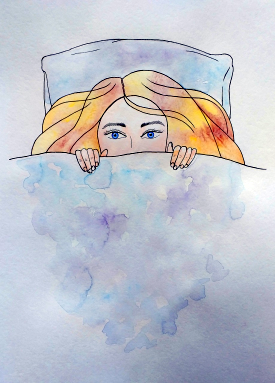Does Migraine Make You Sleep More – or Less?
A recent study and review of previous studies came to an interesting conclusion. Maybe migraine headache pain isn’t causing as many sleep problems as we think. But that doesn’t mean migraine and sleep aren’t related.

The study, published earlier this year in the journal Brain Communications, reported on a study with mice to see just how much migraine pain interfered with sleep. And the surprising result was: not much.
Let’s put it this way. Looking at this research and other studies, migraine does seem to affect sleep in certain ways (for example, migraine may affect REM sleep). But we can be forgiven if our perception is an exaggerated connection – when you’re writhing in pain, you’re desperate to sleep – and sometimes sleep just won’t come.
However, for some patients, they do sleep more with migraine. This may be a physical result of migraine itself, or simply because they’re trying to sleep more, and looking for a dark, quiet room.
I would be interested in your comments below, to hear if you have found that migraine pain actually results in less sleep or more sleep overall.
But that’s not the end of the story. The researchers confirmed again that migraine is associated with sleep disorders, and that sleep problems may trigger migraine attacks. In fact, sleep disorders may play a part in migraine becoming chronic. The connection between sleep and migraine is real, but complex. As a simple example, a poor night of sleep may not mean a migraine attack the next day, but it may increase your risk the day after that.
Sleep schedule, along with diet, may be one of the most powerful indicators of future migraine attacks. Though we all get frustrated when we can’t “sleep away” a migraine attack, we should also pay attention to daily sleep patterns in order to prevent future attacks.
